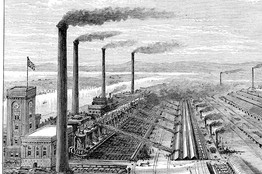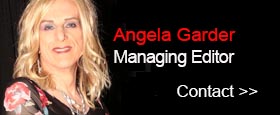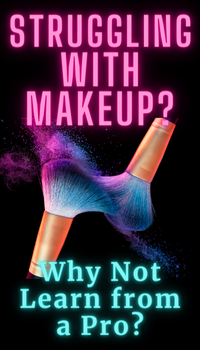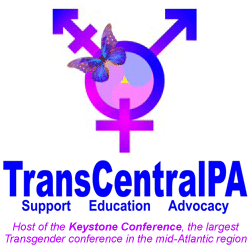Families We Choose
Chosen Families
The families of the past have abandoned us
They have gone their own way
Or chosen not to associate with us
So, we celebrate holidays with families we choose
The daughters and I have moved from our once home
To be with other families or to seek our fortunes
Some of us have been left alone by
Those whose time came and went
So, we choose new families at least for a day
We catch up with each other as if we have always known them
Glad for their good times and bad
Just as we would have done with families of the past
They are more polite than past families
Heated discussions forbidden by unwritten rules
Quick changes of subject suffice to keep talk in bounds
Past families should have done that too
We are thankful to just be together
Which is the point of it all
We are alive and as humans need families
Even if chosen families for a day
–D. Jennett Bevan
Many of us will form temporary families during this and other holiday seasons. This is due to the long standing tendency of humans to form groups which improved the chances of survival. Initially such groups were closely related by genealogy as hunter-gatherer tribes but some genetic diversity was needed to improve the health, strength, and technologies of the group for survival, so the groups had to incorporate new people.
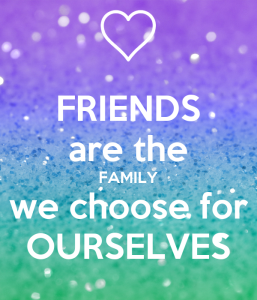 In my own case, I know that I have, at least, 50% Welsh ancestry from genealogy and DNA testing. The DNA test shows that I get some from both my parents. As hunter-gatherers, the Welsh were the indigenous people of Wales which is the largest western peninsula of the island of Britain. They were, in fact, the true Britons but were not Celtic in origin as is sometimes alleged. As they progressed in ship building, the Welsh began to trade with the peoples across the Irish Sea to the west, England to the east and down the coast even as far away as Eshu Nigeria. A large contingent of Spanish fishermen also settled in Wales.
In my own case, I know that I have, at least, 50% Welsh ancestry from genealogy and DNA testing. The DNA test shows that I get some from both my parents. As hunter-gatherers, the Welsh were the indigenous people of Wales which is the largest western peninsula of the island of Britain. They were, in fact, the true Britons but were not Celtic in origin as is sometimes alleged. As they progressed in ship building, the Welsh began to trade with the peoples across the Irish Sea to the west, England to the east and down the coast even as far away as Eshu Nigeria. A large contingent of Spanish fishermen also settled in Wales.
The Welsh dealt with this situation by making love, not war, and the Welsh benefitted by increased genetic and cultural diversity. There were undoubtedly “chosen” families from diverse backgrounds at the Welsh tables.
When Caesar and the Romans invaded Wales in 54 B.C.E., there was resistance to their rule but Roman military forces were strong and the Welsh were pushed to the west to the edge of the peninsula to the Irish Sea. Some of my ancestors remained there, in towns bordering Cardigan Bay, where genetic matches are found. The Romans brought government to the Britain as well as Christianity and there was mingling with the native Welsh. When the Romans withdrew from Britain at the order of their emperor, Magnus Maximus (Macsen in Welsh), the Welsh moved eastward and most of my Welsh ancestors are from Cardiff in eastern Wales (Glamorgan).
It was then that the Vikings invaded. They came down through the Irish Sea in raiding parties but some of them settled down in Wales. Recent genetic evidence indicates that the Vikings brought a hodgepodge of ancestries, including Eastern peoples who had settled in Denmark and Norway, only to move on. There must have been some wild and wooly gatherings with all those rough folks. I also have some Danish and Norwegian genetic connections through these interactions.
And then came the Normans from what is now France who invaded in 1066. They encountered stiff resistance but again pushed the Welsh to the western edges of the peninsula. Unlike the Romans, the Normans stayed and built 600 castles in response to the resistance. Resistance must have been stiff because there are more castles per square mile in Wales than any place on earth! The first Norman castle was built in Cardigan in 1176 (presumably to pacify my Cardigan ancestors). Over the centuries , the Welsh fought back with love, not war to the point that they almost lost their culture to invaders. Methodism crept in from England and competed with Catholicism. The policies of England even as late as Margaret Thatcher’s government in the 1980s discouraged the use of the Welsh language and made the Welsh second-class citizens.
The only saving grace was that Wales was prosperous, due to being ground zero for the Industrial Revolution and for coal mining, both of which England needed to maintain their empire and defense. The formidable British navy was mainly powered by high quality coal from the mines of Wales. The dockworkers in Cardiff, from where the coal was shipped, formed one of the first multicultural districts in Tiger Bay. This district was rough and tumble but people from all over the world got their starts there. Dame Shirley Bassey who sang many of the James Bond theme songs is from Tiger Bay.
So, the Welsh are a diverse and resilient lot and so are transgender people. Our strength comes, like the Welsh, from our genetic, ethnic, and religious diversity. We only share a few genes that predisposes us to be transgender. We now participate in all sorts of LGBT gatherings during the holiday season. Some are spontaneous and some are facilitated by support groups and other organizations.
The thing we do not have is an agreed-upon song. The Welsh have a handsome one that they sing when the Welsh National Soccer Team plays and at other patriotic events. (The Welsh have always been known for their singing.) In Welsh, it is entitled Yma o Hyd , translated as “We are still here!” The song has illusions to Welsh history that I mentioned above. You can hear the song on YouTube.
The full translation is below:
You don’t remember Macsen (Roman Emperor),
nobody knows him.
One thousand and six hundred years,
a time too long to remember.
When Magnus Maximus left Wales,
in the year 383,
leaving us a whole nation,
and today – look at us!
We are still here,
in spite of everyone and everything,
in spite of everyone and everything,
in spite of everyone and everything.
We are still here!
Let the wind blow from the East,
let the storm roar from the sea,
let the lightning split the heavens,
and the thunder shout “encore!”
Let the tears of the faint-hearted flow,
and the servile lick the floor.
Despite the blackness around us,
we are ready for the breaking of the dawn!
We are still here,
in spite of everyone and everything,
in spite of everyone and everything,
in spite of everyone and everything.
We are still here!
We remember that Macsen the Emperor
left our country in one whole piece.
And we shall shout before the nations,
“We’ll be here until Judgement Day!”
Despite every Dic Siôn Dafydd (a Welsh person who ignores their culture),
despite old Maggie (Margaret Thatcher, Prime Minister of England) and her crew,
we’ll be here until the end of time,
and the Welsh language will be alive!
We are still here,
We are still here,
in spite of everyone and everything,
in spite of everyone and everything,
in spite of everyone and everything.
We are still here!
Chorus in Welsh from Whence the Title Comes
(Welsh and English)
Ry’n ni yma o hyd (We are still here).
Ry’n ni yma o hyd (We are still here).
Er gwaetha pawb a phopeth (in spite of everyone and everything)
Er gwaetha pawb a phopeth (in spite of everyone and everything)
Er gwaetha pawb a phopeth (in spite of everyone and everything)
Ry’n ni yma o hyd! (We are still here!)
And so, as we gather with families we choose, we should remember that there is one thing we all share and that is the goal of individual happiness. We achieve happiness by being sovereign in our individuality and by cooperating when we choose. This is the source of the goodwill we have towards others. We want the best that they have because life is not a zero sum game.
Category: Transgender Body & Soul



